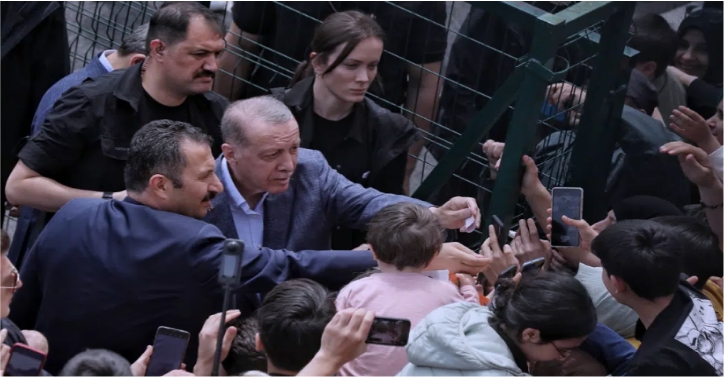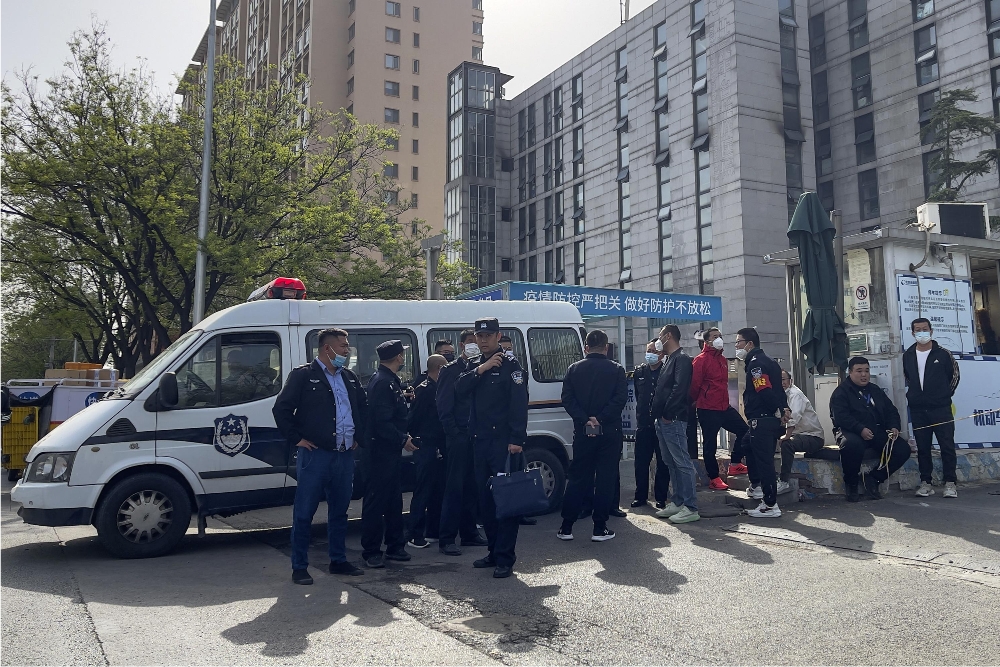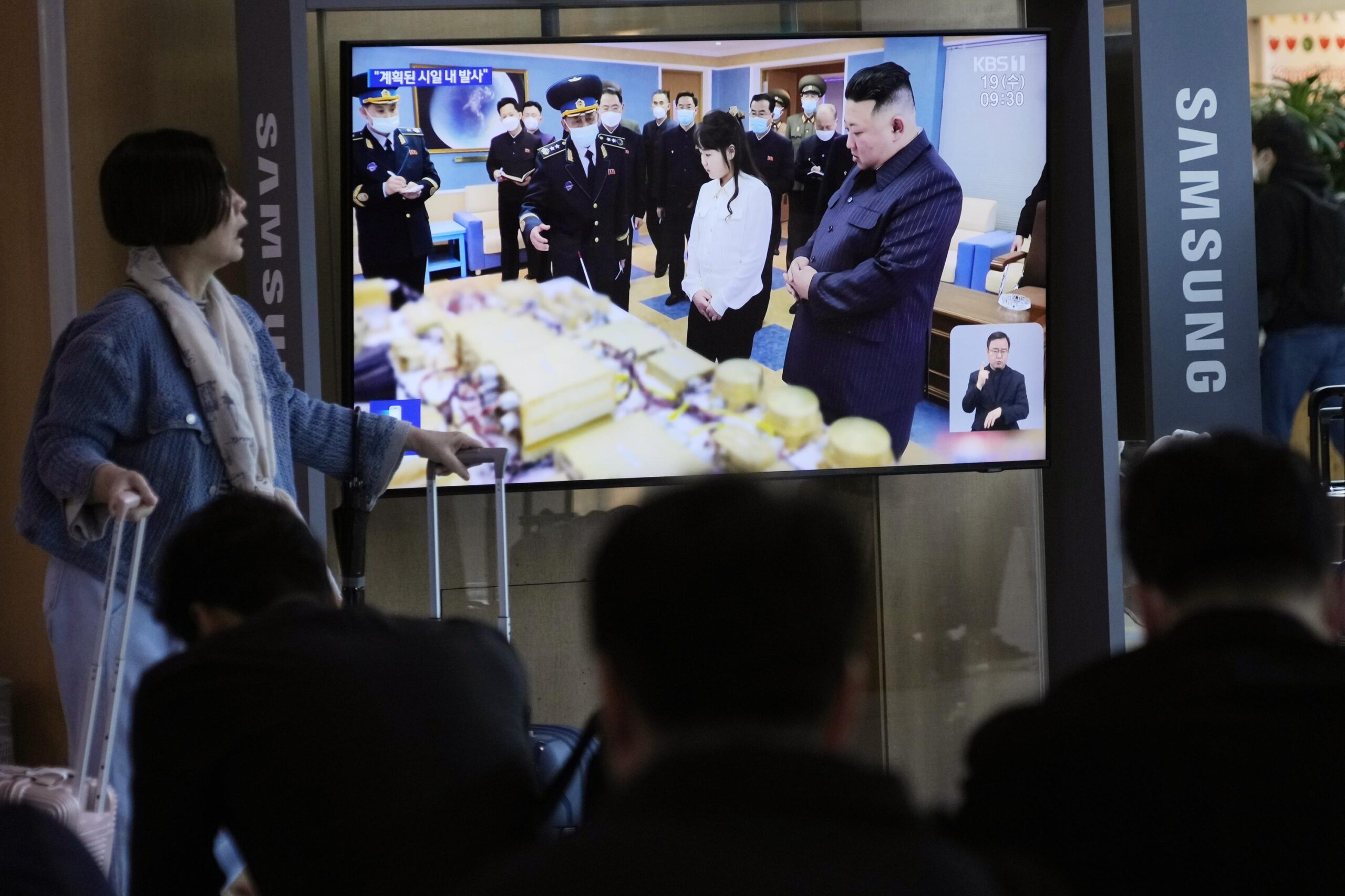Thousands of pro-democracy protesters are blocking Hong Kong’s streets, shutting down the territory’s business hub and ignoring appeals to leave.
Crowds remained on the streets overnight after a day that saw riot police deploy tear gas and batons in a bid to disperse protesters.
On Monday, the Hong Kong government said riot police were being withdrawn as people had “mostly calmed down”.
But some banks and schools were closed, and there was transport chaos.
Protesters are angry at Beijing’s plans to vet candidates in Hong Kong’s 2017 elections.
Hong Kong’s chief executive has reassured the public that rumours the Chinese army might intervene were untrue.
“I hope the public will keep calm. Don’t be misled by the rumours,” CY Leung said.
Sunday saw angry scenes on Hong Kong’s streets as protesters faced riot police.
Thousands of people remained camped out around the government complex overnight, despite appeals for them to go home. Many have erected barricades.
About 3,000 people have also blocked a major road across the bay in Mongkok while a crowd of about 1,000 faced a line of riot police in the busy shopping district of Causeway Bay, east of central Hong Kong.
Ahead of rush-hour on Monday, police issued a statement urging protesters to “stay calm, stop charging police cordon lines and occupying the main roads”.
The Hong Kong Education Bureau also announced on Monday that schools in Wan Chai as well as the Central and Western districts would be closed.
In other developments:
- More than 200 bus routes have been cancelled or diverted; some subway exits in protest areas have been blocked
- Several banks have suspended operations in affected areas
- Police said they arrested 78 people on Sunday, after 70 arrests on Saturday.
- In the Taiwanese capital, Taipei, a group of protesters gathered outside the Hong Kong cultural office in a show of support
- President Ma Ying-jeou said Taiwan was closely watching the situation in Hong Kong
- In mainland China, reports say Instagram has been blocked, it is thought due to the protests
The Hong Kong Education Bureau also announced on Monday that schools in Wan Chai as well as the Central and Western districts would be closed.
The broader Occupy Central protest movement threw its weight behind student-led protests on Sunday, bringing forward a mass civil disobedience campaign due to start on Wednesday.
In a statement on Monday, the movement called on Mr Leung to step down, saying “only this will make it possible to re-launch the political reform process and create a space in which the crisis can be defused”.
China, which stations a garrison of the People’s Liberation Army (PLA) in Hong Kong, said it was confident the city’s administration could handle the protests.
A spokesman for China’s Hong Kong and Macau affairs office said that Beijing “firmly opposes all illegal activities that could undermine rule of law and jeopardise ‘social tranquillity’ and it offers its strong backing” to the Hong Kong government, Xinhua news agency reports.
In an editorial, state mouthpiece Global Times said the mainland felt “sorrow over the chaos in Hong Kong” which it blamed on “radical opposition forces”.
Analysts say Communist Party leaders in Beijing are worried that calls for democracy could spread to cities on the mainland.
Britain handed Hong Kong back to China in 1997 under a “one country, two systems” formula that guarantees liberties not seen on the mainland, including freedom of speech and the right to protest.
Hong Kong democracy timeline
- 1984: Britain and China sign an agreement where Hong Kong is guaranteed “a high degree of autonomy, except in foreign and defence affairs” for 50 years following the handover in 1997.
- 2004: China rules that its approval must be sought for changes to Hong Kong’s election laws.
- 2008: China says it will consider allowing direct elections by 2017.
- June-July 2014: Pro-democracy activists hold an unofficial referendum on political reform and a large rally. This is followed by protests by pro-Beijing activists.
- 31 August 2014: China says it will allow direct elections in 2017, but voters will only be able to choose from a list of pre-approved candidates. Activists stage protests.
- 22 September 2014: Student groups launch a week-long boycott of classes in protest.

















